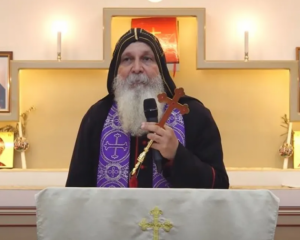The airline today said it had done all it could to prevent the explosion which forced one of its Boeing 747-400s to make an emergency landing in Manila last Friday.
After Melbourne-bound QF30 landed, a hole up to two metres across was discovered in its fuselage.
Authorities are investigating whether an oxygen cylinder may have exploded mid-flight.
Qantas chief executive Geoff Dixon today said he was satisfied the aircraft had been subjected to all the "very, very strict" maintenance and security checks Qantas was renowned for.
"We believe that everything on that aircraft was in good shape," he said in Sydney.
"We can't speculate on what happened to this aircraft, but obviously ... it's something that may well have been out of our control and more than likely it was.
"But the things that were in our control we handled very, very well ... we have a worldwide reputation for it."
Civil Aviation Safety Authority (CASA) spokesman Peter Gibson said if an oxygen cylinder did explode mid-flight, it would be the first time that had occurred on a passenger aircraft.
"As far as we can determine this has never happened before on a passenger aircraft," Mr Gibson told ABC Radio.
"There's no reports of it anywhere, so it's very, very unusual and obviously understanding why that happened will be absolutely critical to making sure it can't occur again."
Metal fatigue, a failure of the regulator valve on the cylinder, something hitting and puncturing it or the cylinder becoming too hot were among the possible causes the Australian Transport Safety Bureau (ATSB) investigation would examine, he said.
The US Federal Aviation Administration had ordered airlines with US-registered Boeing 747-400s to check oxygen cylinders after reports many had not been properly heat-treated and needed replacing, Fairfax reported.
However, Mr Dixon said this directive was to deal with a specific issue on other aircraft and was not relative to what happened to flight QF30.
"It's important to remember that that was not anything to do with what we are speculating may well have been the potential cause of the (incident)," he said.
Mr Gibson said there was currently no evidence the 747-400 aircraft should be grounded, but the rest of the Qantas fleet would undergo extensive safety checks as a precaution.
Some passengers on the flight from London complained oxygen masks failed when the cabin lost pressure.
Mr Gibson said it was too early to say whether the masks failed, or whether passengers were just confused about how to use them.
He said the ATSB would also look into that matter.
"So all those things will be looked at, but it's really too early at this stage to make any judgments on whether those comments are being made because there was a failure or simply because people were a bit confused about what to do," Mr Gibson said.
Mr Dixon said it was possible the damage to the aircraft could have interfered with other systems, but there was no doubt all the masks had been inspected recently.
Qantas chief pilot Captain Chris Manning said while Australia's aviation safety standards were being "harmonised" with the rest of the world, that was not to say they were being lowered to minimum world standard.
"They're the same as they've always been -- the highest in the world," he told ABC Radio.
"Australian regulations are changing to be harmonised with the rest of the world. That doesn't mean they're lower, that means they're different."
The ATSB said fragments that could be from a missing oxygen cylinder, including part of a valve, had been found in the passenger cabin of the Qantas jet.
"However, it is yet to be determined whether these components are part of the aircraft system," it said in a statement.
The aircraft's flight data recorder and cockpit voice recorder are now in Australia and will be examined in Canberra over the next few days, the ATSB said.
The ATSB said it would be examining maintenance records for the aircraft, including any airworthiness directives or alert bulletins that may have been issued by the regulators or the manufacturers.
The entire crew of QF30 would be interviewed, and all passengers surveyed by the ATSB within the next two weeks.












